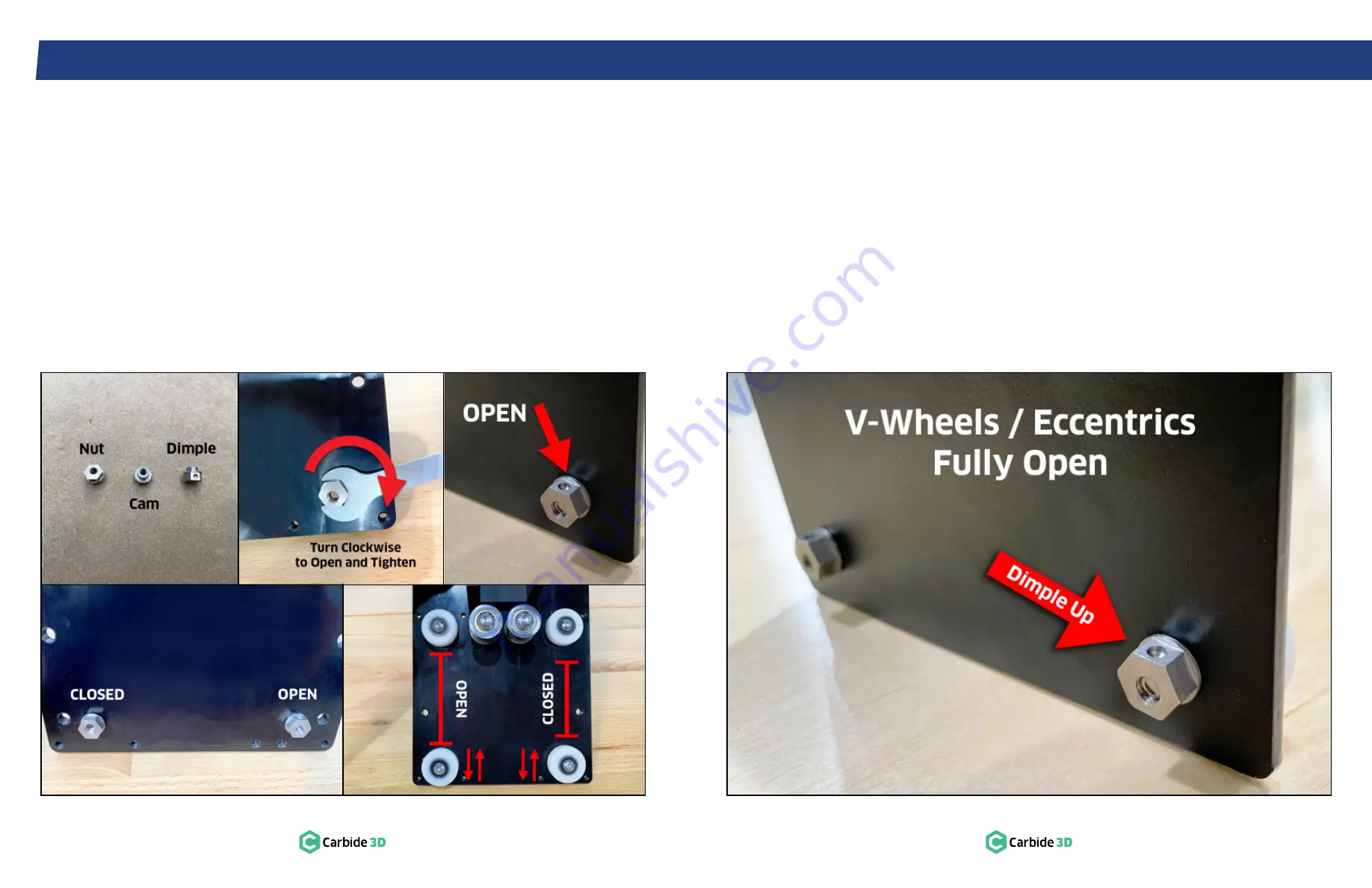
S T E P 3
S T E P 3 – G a n t r y
14
docs.carbide3d.com
15
3.2 Eccentric Nuts And
V‑wheels Explained
Eccentric nuts and V-wheels are used to adjust
the gantry at the intersect between the carriage
V-wheels and the V-rails. A loose connection
here is referred to as slop. To eliminate slop, a
very small amount of tension is added between
the V-wheels and V-rail. Too much tension and
the V-wheels will deform, causing bumpy and
constrained motion. Not enough tension, and the
carriage will wobble. When tension is just right,
the carriages glide smoothly along the rails for the
highest-quality cuts.
Figure 3-3
A dimple on one the side of the nut indicates the
furthest point from center of the offset threads.
When the dimple is facing UP, the distance
between the top and bottom V-wheel is at its
greatest and the V-wheels are OPEN. When
the dimple is facing DOWN, they are CLOSED.
Figs. 3-2
and
3-3
.
When adding tension to a loose V-wheel, turn
the eccentric nut CLOCKWISE. Turning counter-
clockwise will loosen the bolted connection
between nut and V-wheel. If this happens,
re-tighten with a 10mm wrench and a 3mm hex key.
Not much tension is needed for the carriages to be
secure. The V-wheels should only be snug against
the V-rail. Reach under and spin the V-wheel with
your finger. If it rotates freely, turn the eccentric
nut clockwise until you feel some friction against
the rail and the carriage is free from slop.
See
Figs. 3-2
and
3-3
.
3.3 Open V‑wheels
1. Use the 10mm wrench to fully open the X-Axis
gantry’s four (4) eccentric nuts.
a. Turn CLOCKWISE until the dimple is facing
UP.
See
Figs. 3-2
and
3-3
.
NOTE:
You may need to use a 3mm hex key to
loosen the V-Wheel screws to be able to turn the
eccentric nuts.
NOTE:
Feel free to use a 10mm combination
wrench in lieu of the included wrench.
Figure 3-2










































